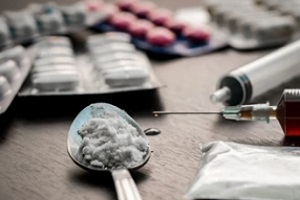 Death rates due to heroin overdose decreased more than 6% between the years of 2018 and 2019. However, in the United States alone, upwards of 14,000 people died from various drug overdoses, which is a rate of over 4 deaths per every 100,000 Americans, a number that is seven times higher than in 1999.
Death rates due to heroin overdose decreased more than 6% between the years of 2018 and 2019. However, in the United States alone, upwards of 14,000 people died from various drug overdoses, which is a rate of over 4 deaths per every 100,000 Americans, a number that is seven times higher than in 1999.
In fact, approximately 1/3 of all opioid deaths involve heroin. These numbers are most certainly striking and continuously prove that America is dealing with a severe crisis. In this brief article, we will be discussing what to do if you have already experienced a heroin overdose, and what actions to take to move forward toward healing.
Understanding A Heroin Overdose
In order to truly comprehend a heroin overdose, you first need to understand how the process works in its entirety. A heroin overdose, much like other drug overdoses, simply depicts a pathologic level of the drug’s toxicity in your body. The level of this toxicity, however, must be at a magnitude at which the drug itself entirely overwhelms the regular physiological functioning of your body.
Heroin overdose symptoms largely depend on how much of the drug has been consumed. It should be noted that it is not always easy to determine what overdose symptoms are going to specifically arise for any given individual. This is why it can also be hard to determine from what substance someone is overdosing based solely upon their symptoms. If you are under the influence of heroin, it will be incredibly difficult to diagnose yourself should you suspect you are experiencing an overdose.
As a general rule, some standard symptoms that are most often associated with heroin overdoses can include, but are not necessarily limited to: difficulty breathing, severe chest pain, severe anxiety, seizures, delirium, severe headaches and extreme agitation.
Other symptoms may include, but again, are not necessarily limited to:
- Drastic deviations from one’s normal body temperature (i.e., hypothermia/hyperthermia)
- Unresponsiveness from loss of consciousness, “passing out”
- Changes to one’s skin color (a bluish tint to the skin tends to occur if a respiratory depressant was utilized)
- A discolored tongue
- Abnormal and/or irregular breathing
- Increased, decreased or otherwise irregular pulse
- Extremely constricted pupils
- Nausea and/or vomiting
If the individual you suspect of overdosing is awake, be an active listener to help seek out certain overdose symptoms that are not otherwise easily spotted, such as stomach cramps, constipation, headaches and chest pains.
Injecting vs. Other Methods: Why It Matters
 Those who use heroin are attempting to gain a stronger high, which is why so many choose to start injecting or “slamming” it. It is important to remember that it is particularly difficult for heroin users to know exactly how much they are taking.
Those who use heroin are attempting to gain a stronger high, which is why so many choose to start injecting or “slamming” it. It is important to remember that it is particularly difficult for heroin users to know exactly how much they are taking.
The risk of heroin overdose then becomes even higher with intravenous use. Furthermore, the overall effects of injected heroin affect your body much more quickly and with greater impact than if the drug was taken in another manner.
What to Do If A Heroin Overdose Is Suspect
Accidental heroin overdoses can occur for a wide array of reasons. Two of the top examples related to accidental overdoses are taking one’s normal dose after their tolerance has been lowered, or combining different abuse substances. Though some individuals do overdose on purpose, the vast majority of heroin overdoses are not intentional.
Overdosing is a medical emergency, and it requires fast and immediate medical attention which can significantly assist in preventing permanent health consequences or death. Many who suffer from overdoses, or have been around someone who is overdosing, have asserted that they failed to call for help due to the fear of legal implications associated with the use or possession of the drug.
This is certainly understandable, and for that reason, in an attempt to save more lives, many states have successfully passed what is referred to as a “Good Samaritan” law. This law legally protects the individual who has suffered from an overdose, along with the individual who calls 911 to report the emergency.
If you suspect that you or someone you know is experiencing a heroin overdose, even if you are not entirely sure, here are the steps you should take immediately:
- Call 911
- Stay on the line for continued guidance
- Try to rouse or awaken the person
- Turn them onto their side
- Wait with the person for help to arrive
After The Overdose
After an overdose, you are going to feel a wide range of feelings, ranging from physical ailments to emotional turmoil. You are going to physically feel sick, exhausted, drained and a variety of other physical symptoms. From an emotional standpoint you are going to feel embarrassed, angry, stressed, sad and a wave of other fluctuating emotions. This is all normal; the first step you need to take, however, is in the way of forgiveness and gratitude.
 Remember to not allow an overdose to bring you down to a darker place. You are leaning on heroin for a reason and after an overdose you may find yourself realizing that you no longer want the drug to be your crutch. Be grateful that you have survived your overdose, and forgive yourself for going to the depths that you did.
Remember to not allow an overdose to bring you down to a darker place. You are leaning on heroin for a reason and after an overdose you may find yourself realizing that you no longer want the drug to be your crutch. Be grateful that you have survived your overdose, and forgive yourself for going to the depths that you did.
Allow the experience to shape you and make you stronger; it is from this experience and from this strength that you will find the courage to pick yourself up and carry on. Use this to move to the path of recovery in order to ensure that an overdose never threatens your life or well-being again.
Finding Help
When you have taken the first steps to realize that your heroin addiction has jeopardized your life, you truly are ready to find healing. The path to recovery is undoubtedly a long one, and you are most certainly going to need all of the help that you can get in order to truly find the success that you need.
It is perfectly okay to accept that you can’t heal from your addiction on your own. No one can; we need one another to find healing and an ultimate sense of balance through our recovery. The good news, however, is that help is out there, and it is waiting for you to take action and take your life back.
Aquila Recovery addresses drug and alcohol addiction as a medical condition and not a moral failing. We are here to help you find a solid recovery path. If you or a loved one is struggling with heroin addiction, don’t wait, Aquila Recovery Center is here to help. Please don’t hesitate to reach out to our facility today to find the answers you need to all of your pressing questions regarding heroin addiction and the treatment process, so that you or a loved one can get the help needed to fast track the recovery process.
